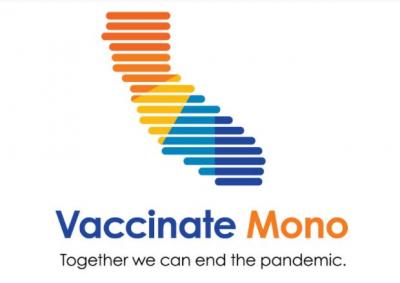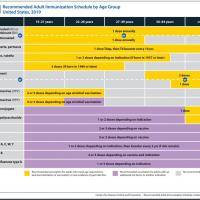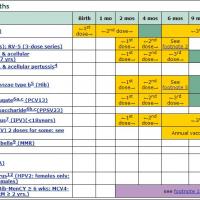Clone of Immunization Program
COVID-19 Vaccination:
PRE-REGISTER: Mono County COVID-19 and Flu Vaccine Clinics
Mono County Public Health is hosting the following COVID-19 (Coronavirus) vaccine clinics for individuals aged 5 and older. Pfizer, Moderna, and Johnson and Johnson are all available.
5/03/22 (Tuesday): Lee Vining Community Center (296 Mattly Ave); 10am - 12pm
5/03/22 (Tuesday): June Lake Community Center (90 W Granite Ave.); 12:30pm – 2:30pm
5/05/22 (Thursday): Bridgeport Memorial Hall (73 North School St. ); 10am - 2pm
5/10/22 (Tuesday): Walker Community Center (442 Mule Deer Rd); 11am – 1:30pm
5/12/22 (Thursday): Bridgeport Memorial Hall (73 North School St. ); 10am - 2pm
5/17/22 (Tuesday): Benton Community Center (58869 Hwy 120); 10am - 11:30am
5/17/22 (Tuesday): Chalfant Community Center (123 Valley Rd); 12:00pm – 1:30pm
5/19/22 (Thursday): Bridgeport Memorial Hall (73 North School St ); 10am - 2pm
5/24/22 (Tuesday): Crowley Lake Community Center (482 S Landing Rd); 11am – 1pm
5/26/22 (Thursday): Bridgeport Memorial Hall (73 North School St ); 10am - 2pm
5/31/22 (Tuesday): Lee Vining Community Center (296 Mattly Ave); 11am - 2pm
~ All clinics are subject to change due to weather, please see website for updates.
Flu vaccines will also be available at these clinics, and both vaccines can be administered at the same time. Flu vaccines have been shown to reduce the risk of flu illness, hospitalization, and death. Similar to wearing a mask, the flu vaccine protects the vaccinated person, as well as the people around them. Getting a flu vaccine can also save healthcare resources for the care of patients with COVID-19.
PRE-REGISTER: Mono County COVID-19 and Flu Vaccine Clinics
See the full MyTurn schedule and register here
For the most up to date information, please visit the Vaccinate Mono tab of our COVID-19 portal.
Para mas informacion, visite nuestro pagina Vacunar Mono en el Portal de COVID-19.
Programa de Inmunizacion
PRE-REGÍSTRESE: Clínicas de vacunas contra el COVID-19 y la influenza del condado de Mono. Mono County Public Health está organizando las siguientes clínicas de vacunas COVID-19 (Coronavirus) para personas de 5 años o más. Pfizer, Moderna y Johnson and Johnson están disponibles.
3 de mayo, 22 (martes): Lee Vining Community Center (296 Mattly Ave); 10am - 12pm
3 de mayo, 22 (martes): June Lake Community Center (90 W Granite Ave.); 12:30pm – 2:30pm
5 de mayo, 22 (jueves): Bridgeport Memorial Hall (73 North School St. ); 10am - 2pm
10 de mayo, 22 (martes): Walker Community Center (442 Mule Deer Rd); 11am – 1:30pm
12 de mayo, 22 (jueves): Bridgeport Memorial Hall (73 North School St. ); 10am - 2pm
17 de mayo, 22 (martes): Benton Community Center (58869 Hwy 120); 10am – 11:30am
17 de mayo, 22 (martes): Chalfant Community Center (123 Valley Rd); 12pm – 1:30pm
19 de mayo, 22 (jueves): Bridgeport Memorial Hall (73 North School St. ); 10am - 2pm
24 de mayo, 22 (martes): Crowley Lake Community Center (482 S Landing Rd); 11am – 1pm
26 de mayo, 22 (jueves): Bridgeport Memorial Hall (73 North School St. ); 10am - 2pm
31 de mayo, 22 (martes): Lee Vining Community Center (296 Mattly Ave); 11am - 2pm
~ Todas las clínicas están sujetas a cambios debido al clima, consulte el sitio de web para obtener actualizados. ~
PRE-Regístrese: Clínicas de vacunas contra el COVID-19 y la Influenza del Condado de Mono al /MyTurn.ca.gov
Calendario De Clinicas Para La Influenza 2021
Las vacunas contra la gripe se proporcionan sin costo a los residentes del condado de Mono. Las vacunas para el COVID también se ofrecerán en las clínicas. Para más información llame (760) 924-1830 o visite nuestra pagina web al https://monohealth.com/public-health
__________________________________________________________________________________
Flu vaccines have been shown to reduce the risk of flu illness, hospitalization, and death. Similar to wearing a mask, the flu vaccine protects the vaccinated person, as well as the people around them. Getting a flu vaccine can also save healthcare resources for the care of patients with COVID-19.
Flu vaccination is part of a comprehensive public health strategy to reduce the burden of flu, and also to preserve scarce health care resources for care of patients with COVID-19.
Getting a flu vaccine will:
- Help keep you and your loved ones out of hospital;
- Help save scare medical resources to care for COVID-19 patients; and,
- Protect frontline healthcare workers who will be caring for people sick with respiratory illnesses this fall and winter
Flu vaccine benefits include:
- Flu vaccine has been shown to reduce the risk of flu illness, hospitalization, and death by about half;
- If you get a flu vaccine, you are less likely to get flu and need to go to a doctor’s office, urgent care, or emergency room;
- If you get a flu vaccine you are less likely to be hospitalized or to die from flu;
- Flu vaccination is an important preventative tool for people with chronic health conditions, including lung disease, heart disease, diabetes, neurological conditions, and weakened immune systems; and,
- Flu vaccine decreases the severity of illness in individuals whom get vaccinated, but still get sick.
Below is a summary of the benefits of flu vaccination and selected scientific studies that support these benefits.
Flu vaccination can keep you from getting sick with flu
Flu vaccine prevents millions of illnesses and flu-related doctor’s visits each year. For example, during 2018-2019, flu vaccination prevented an estimated 4.4 million influenza illnesses, 2.3 million influenza-associated medical visits, 58,000 influenza-associated hospitalizations, and 3,500 influenza-associated deaths.
During seasons when the flu vaccine viruses are similar to circulating flu viruses, flu vaccine has been shown to reduce the risk of having to go to the doctor with flu by 40 percent to 60 percent.
Flu vaccination can reduce the risk of flu-associated hospitalization for children, working age adults, and older adults.
Flu vaccine prevents tens of thousands of hospitalizations each year. For example, during 2018-2019 flu vaccination prevented an estimated 58,000 flu-related hospitalizations.
A 2014 showed that flu vaccine reduced children’s risk of flu-related pediatric intensive care unit (PICU) admission by 74% during flu seasons from 2010-2012.
In recent years, flu vaccines have reduced the risk of flu-associated hospitalizations among older adults on average by about 40%.
A 2018 study showed that from 2012 to 2015, flu vaccination among adults reduced the risk of being admitted to an intensive care unit (ICU) with flu by 82 percent.
Flu vaccination is an important preventive tool for people with chronic health conditions.
Flu vaccination has been associated with lower rates of some cardiac events among people with heart disease, especially among those who had had a cardiac event in the past year.
Flu vaccination can reduce worsening and hospitalization for flu-related chronic lung disease, such as in persons with chronic obstructive pulmonary disease
Flu vaccination also has been shown in separate studies to be associated with reduced hospitalizations among people with diabetes and chronic lung disease
Flu vaccination helps protect women during and after pregnancy.
A 2018 study that included influenza seasons from 2010-2016 showed that getting a flu shot reduced a pregnant woman’s risk of being hospitalized with flu by an average of 40 percent.
Vaccination reduces the risk of flu-associated acute respiratory infection in pregnant women by about one-half.
A number of studies have shown that in addition to helping to protect pregnant women, a flu vaccine given during pregnancy helps protect the baby from flu for several months after birth, when he or she is not old enough to be vaccinated.
Flu vaccine can be lifesaving in children.
A 2017 study was the first of its kind to show that flu vaccination can significantly reduce a child’s risk of dying from flu.
Flu vaccination has been shown in several studies to reduce severity of illness in people who get vaccinated but still get sick.
A 2017 study showed that flu vaccination reduced deaths, intensive care unit (ICU) admissions, ICU length of stay, and overall duration of hospitalization among hospitalized flu patients.
A 2018 study showed that among adults hospitalized with flu, vaccinated patients were 59 percent less likely to be admitted to the ICU than those who had not been vaccinated. Among adults in the ICU with flu, vaccinated patients on average spent 4 fewer days in the hospital than those who were not vaccinated.
Getting vaccinated yourself may also protect people around you, including those who are more vulnerable to serious flu illness, like babies and young children, older people, and people with certain chronic health conditions. Despite the many benefits offered by flu vaccination, only about half of Americans get an annual flu vaccine and flu continues to cause millions of illnesses, hundreds of thousands of hospitalizations and tens of thousands of deaths. Many more people could be protected from flu if more people got vaccinated.*References for the studies listed above can be found at Publications on Influenza Vaccine Benefits. Also, see the A Strong Defense Against Flu: Get Vaccinated fact sheet.[JC1]
Ready for School – preschool through college?
Getting all of the recommended vaccines is one of the most important things a parent can do to protect their child’s health, especially when they are in a setting like a school or a child care center where disease outbreaks can occur. Whether it’s a baby starting at a new child care facility, a toddler heading to preschool, a student going back to elementary, middle or high school – or even a college freshman – parents should check their child’s vaccine records.
When parents are preparing to send their child off to day care, school or college, it’s the perfect time to check if he or she is up to date on recommended vaccines.
Child care facilities, preschool programs, schools and colleges are highly susceptible to outbreaks of infectious diseases. Children can easily transmit illnesses to one another due to poor hand washing, uncovered coughs, dense populations and other factors. When children aren’t vaccinated, they are at increased risk for disease and can spread disease to others in their classrooms and communities. This includes babies too young to be fully vaccinated and people with weakened immune systems due to cancer or other health conditions. Now is the time for parents to check with their child’s doctor, school or the local health department to learn about the requirements.
Follow the immunization schedule to provide your child with the best protection, and keep your child’s vaccine records current.
Between the time your child is born and when they go off to college, they’ll get vaccines to protect against a number of serious diseases.
∞ Make sure that you provide your child care facility with updated vaccine records each time you visit the doctor to get another important dose of a vaccine.
∞ Some children at your child care center may be too young for certain vaccines, and are therefore vulnerable to diseases. By keeping your children up to date on vaccines, you’ll be protecting their younger classmates as well. You will also be helping to protect people in your community with weakened immune systems, such as some people with cancer and transplant recipients, who are also at higher risk of disease.
∞ Preteens and teens are at risk for diseases like meningitis and HPV cancers and need the protection of vaccines to keep them healthy and in school.
∞ Vaccines are recommended for preteens and teens because:
Some of the childhood vaccines wear off over time, so adolescents need shots to stay protected from serious diseases like tetanus, diphtheria, and pertussis (whooping cough).
As children get older, they are at greater risk of getting certain diseases like meningitis, septicemia, and HPV-related cancers. Specific vaccines, like HPV, should be given during the preteen (11 to 12) years because they work better at that age.
Vaccines not only protect your preteens and teens from serious diseases. They also protect siblings, friends and the people who care for them, like parents or grandparents.
∞ Even healthy college students can get sick from vaccine-preventable diseases. Protection from vaccines received during childhood can wear off with time, and college students may also be at risk for other vaccine-preventable diseases like meningitis.
Many vaccine-preventable diseases can easily spread in child care and school settings.
∞ Schools are a prime venue for transmitting vaccine-preventable diseases, and school-age children can further spread disease to their families and others with whom they come in contact. For example, they can spread disease to vulnerable newborns too young to have received the maximum protection from the recommended doses of vaccines, or people with weakened immune systems, such as some people with cancer and transplant recipients who are also at higher risk of disease.
∞ From January 1 to June 26, 2015, 178 people in the United States have been reported to have measles. Measles is very contagious. It can spread through the air when people with measles cough or sneeze. It is so contagious that if one person has it, nine out of 10 people around him or her will also become infected if they are not protected. An infected person can spread measles to others even before knowing he or she has measles – up to four days before the telltale measles rash appears.
Vaccines are among the safest and most cost-effective ways to prevent disease. Protecting your children from preventable diseases will help keep them healthy and in school.
∞ When a child comes down with a disease such as whooping cough, chickenpox or the flu, he or she may miss a lot of school while recovering – and somebody will need to stay home to provide care and make trips to the doctor.
∞ If you haven’t already, check your child’s immunization record and schedule a visit to their physician or clinic. Doing so now will avoid a potential last minute rush and will help make sure there are no surprises on the first day of school.
∞ Schools require children to be up to date on vaccinations before enrolling or starting school in order to protect the health of all students. If you are unsure of the immunization requirements, check with your child’s doctor, school, child care provider, college health center, or local health department.
Vaccines are recommended throughout our lives. Young adults need vaccines too, especially when they are college bound.
∞ The need for vaccination does not end in childhood. Vaccines are recommended throughout our lives based on age, lifestyle, occupation, travel locations, medical conditions, and previous vaccination history.
∞ Even healthy young adults can get sick from vaccine-preventable diseases. Protection from vaccines you received during childhood can wear off with time, and you may also be at risk for other vaccine-preventable diseases.
∞ You can send your kids off to college protected from serious diseases by making sure they’ve received all the vaccines recommended for them. Far too few adults are receiving the recommended vaccines, leaving themselves and their loved ones unnecessarily vulnerable to serious diseases.
Talk to your child’s healthcare provider or the health department to make sure your children get the vaccinations they need when they need them.
∞ Take advantage of any visit to the doctor – checkups, sick visits, even physicals for sports or college – to ask the doctor about what vaccinations your child needs.
∞ Families who need help paying for childhood vaccines should ask their health care provider or the health department about the Vaccines for Children program or other low cost programs, which provide vaccines at little or no cost to eligible children who do not otherwise have access to immunizations.
LOW COST VACCINES FOR
UNINSURED AND UNDERINSURED ADULTS
NOW AVAILABLE AT MONO COUNTY HEALTH DEPARTMENT
- Hepatitis A
- Hepatitis B
- Human Papilloma Virus (HPV)
- Measles Mumps Rubella (MMR)
- Meningococcal (MCV4)
- Pneumococcal (PCV13)
- Polio
- Tetanus Diptheria (Td)
- Tetanus Diptheria Pertussis (Tdap)
- Varicella (Chickenpox)
Please call Mono County Health Department for more information and to schedule an appointment.
Mammoth Lakes: 760.924.1830. Bridgeport: 760.932.5580




